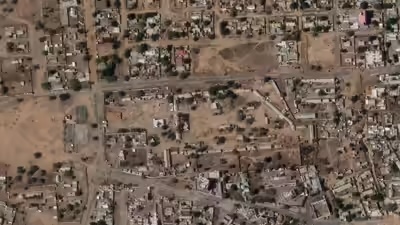Lagatar24 Desk
Khartoum: The United Nations has raised alarm over a deepening humanitarian catastrophe in Sudan after El Fasher, the capital of North Darfur, fell to the Rapid Support Forces (RSF) following an 18-month siege. The city’s capture from the Sudanese Armed Forces (SAF) has unleashed large-scale killings, starvation, and mass displacement, with the UN describing the situation as “one of the world’s worst humanitarian disasters.”
How the Crisis Escalated
The conflict erupted in April 2023 when the SAF and RSF — former allies — turned on each other in a violent struggle for control of Sudan’s power structure. The RSF, which evolved from the Janjaweed militias responsible for past Darfur atrocities, gradually seized major towns across Darfur before encircling El Fasher, the last SAF stronghold in the region.
El Fasher Under Siege and Fall to RSF
After weeks of intense fighting, the RSF overran El Fasher, sparking reports of massacres and ethnic violence. UN relief coordinator Tom Fletcher told the Security Council that there were “credible reports of widespread executions, rape, and mutilation.” Satellite images show evidence of mass graves and targeted attacks on civilians. Fletcher described the violence as “utter impunity,” calling for international intervention.
Humanitarian Toll and Mass Displacement
The International Organisation for Migration (IOM) reported that El Fasher’s population has declined by 62% in 2025 due to killings and forced displacement. Across Sudan, 24 million people face acute food insecurity, with several regions already in famine. The UN Refugee Agency (UNHCR) calls it a “worst-in-class displacement crisis”, warning that neighboring states could face mass refugee inflows.
Regional and Global Implications
UN Assistant Secretary-General for Africa Martha Pobee warned that the RSF’s victory marks a “significant shift in Sudan’s security dynamics,” heightening risks of ethnic cleansing in Darfur, Kordofan, and Blue Nile. The capture effectively gives the RSF control of all major urban centres in Darfur, raising fears of Sudan’s de facto partition and a wider regional conflict.
Weak International Response
Despite “grave concern” expressed by the UN Security Council, global action remains limited. Fletcher urged stronger steps to halt arms transfers and ensure humanitarian access, warning: “There is blood on the sand — and blood on the hands.” Aid agencies say the failure to secure corridors for relief operations risks turning Sudan’s famine into a full-blown genocide.
Why It Matters
The fall of El Fasher cements RSF dominance in Darfur and exposes the paralysis of international diplomacy in preventing civilian massacres. With both sides entrenched, Sudan faces the prospect of prolonged war, deepening famine, and an unprecedented refugee crisis across East Africa.







